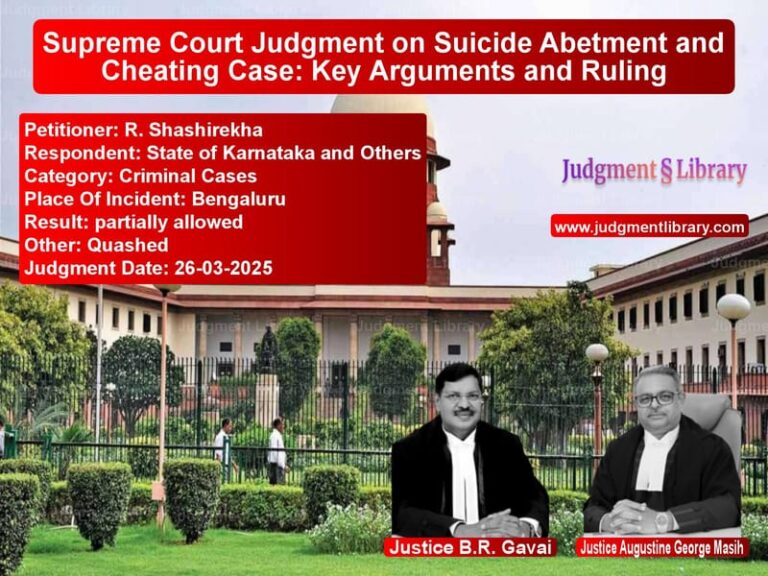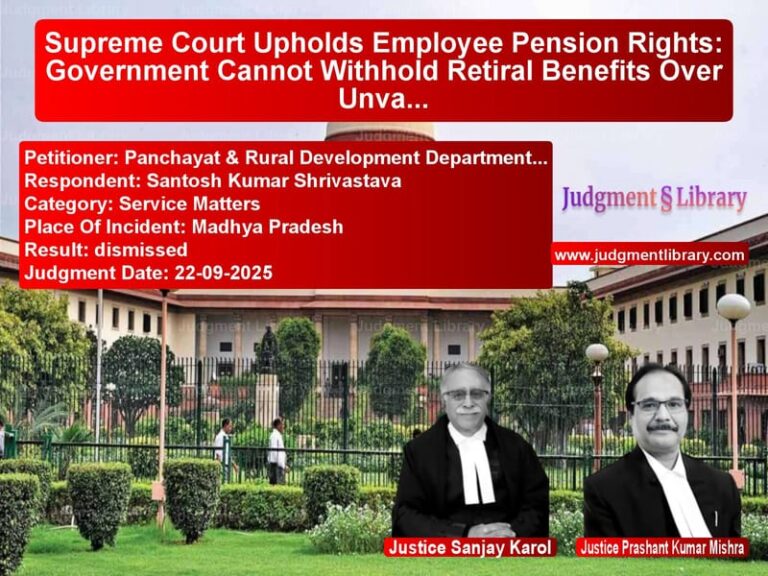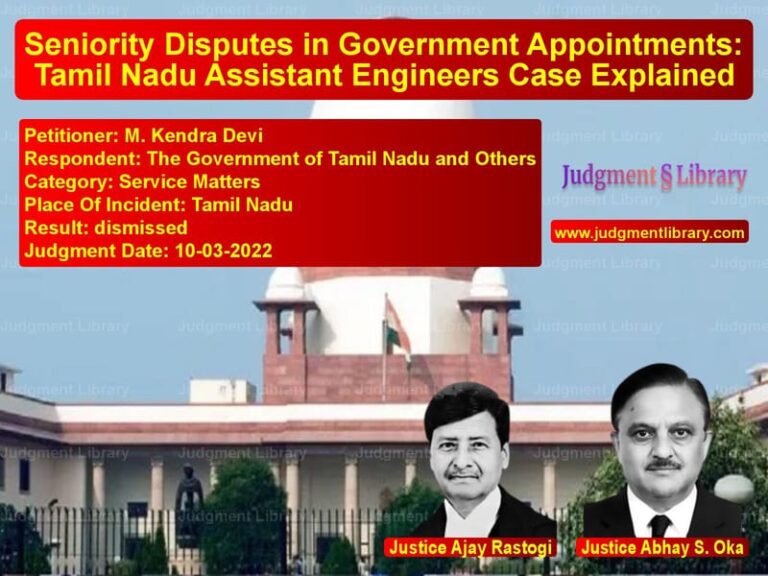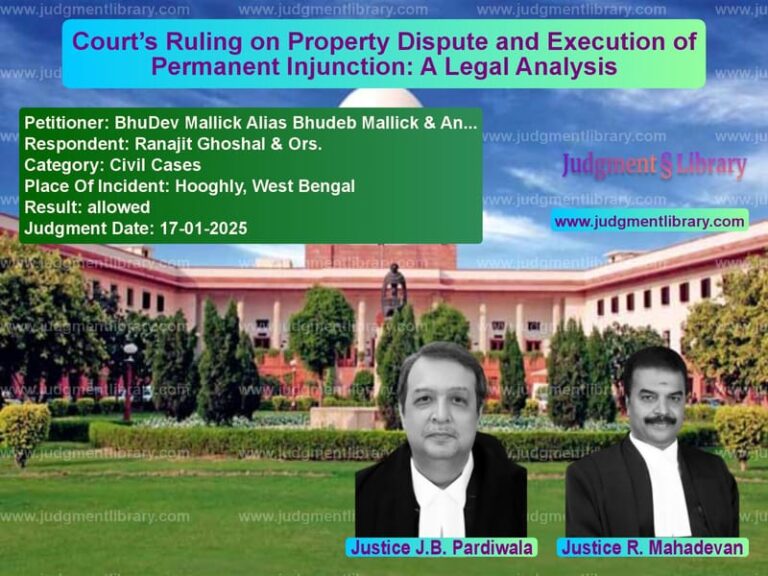Supreme Court Directs High Court to Rehear Retired Officer’s Seniority Dispute
The Supreme Court of India, in the case of C.R. Yadav v. State of Haryana and Ors., addressed a long-pending seniority dispute involving a retired officer. The petitioner, who had filed a writ petition challenging his seniority in 1993, faced an inordinate delay in adjudication. The High Court eventually dismissed his petition in 2016 on the grounds that he had already retired from service. The Supreme Court, however, set aside the High Court’s order and directed it to hear the case on merits.
Background of the Case
The appellant, C.R. Yadav, a retired officer of the Haryana Civil Service (HCS), had initially filed Civil Writ Petition No. 13601 of 1993 before the High Court of Punjab and Haryana, challenging the determination of his seniority. However, due to procedural delays, the petition remained pending for over two decades.
When the case was finally taken up in 2016, the High Court dismissed it, reasoning that the appellant had already retired, and there was no practical benefit in adjudicating the matter after such a long period.
Petitioner’s Arguments
The appellant’s legal counsel presented the following key arguments:
- The petitioner had filed the writ petition during his service, and its prolonged pendency should not be held against him.
- The issue of seniority had legal and financial implications, including post-retirement benefits.
- Retirement does not invalidate a seniority dispute that arose during the service period.
- The High Court erred in dismissing the petition without examining its merits.
Respondent’s Counterarguments
The State of Haryana, representing the respondent, countered with the following arguments:
- Since the petitioner had retired in 2000, his grievance over seniority no longer had any service-related consequences.
- Allowing such delayed claims would set a precedent that could burden courts with long-pending disputes.
- The High Court had correctly exercised its discretion by dismissing the case due to lack of practical utility.
Supreme Court’s Judgment
The Supreme Court, comprising Justices Kurian Joseph and R. Banumathi, ruled as follows:
- The High Court’s dismissal of the writ petition based on the appellant’s retirement was unjustified.
- Since the writ petition was filed during the petitioner’s service and remained pending due to procedural delays, his retirement could not be a valid ground for dismissal.
- The judgment of the High Court dated July 11, 2016, was set aside.
- The case was remitted back to the High Court with a direction to hear and decide it on merits.
- Given the appellant’s advanced age, the High Court was requested to expedite the hearing and dispose of the petition within six months.
Key Legal Takeaways
The Supreme Court’s ruling reinforces several important legal principles regarding service law and seniority disputes:
- Delay in adjudication should not prejudice the petitioner: If a case remains pending due to court delays, it cannot be dismissed merely because the petitioner has retired.
- Retirement does not negate service disputes: Seniority-related claims, particularly those affecting post-retirement benefits, must be decided on their merits.
- Courts must ensure timely justice: The judgment underscores the importance of expeditious disposal of service matters to avoid prolonged litigation.
Implications for Future Cases
This ruling has significant implications for government employees and service law jurisprudence:
- Employees facing delays in adjudication can rely on this precedent to argue against dismissal based on retirement.
- High Courts must assess service-related petitions on their merits rather than dismissing them due to procedural delays.
- Governments must ensure timely resolution of service disputes to prevent prolonged litigation.
Conclusion
The Supreme Court’s decision in C.R. Yadav v. State of Haryana highlights the importance of ensuring that procedural delays do not result in injustice. By directing the High Court to reconsider the petition on merits, the Supreme Court reinforced the principle that legal claims must be decided based on substantive rights rather than technical grounds. This judgment provides crucial relief to retired employees seeking justice for service-related grievances that were left unresolved due to administrative and judicial delays.
Don’t miss out on the full details! Download the complete judgment in PDF format below and gain valuable insights instantly!
Download Judgment: C.R. Yadav vs State of Haryana and Supreme Court of India Judgment Dated 31-03-2017.pdf
Direct Downlaod Judgment: Direct downlaod this Judgment
See all petitions in Employment Disputes
See all petitions in Promotion Cases
See all petitions in Public Sector Employees
See all petitions in Judgment by Kurian Joseph
See all petitions in Judgment by R. Banumathi
See all petitions in allowed
See all petitions in Remanded
See all petitions in supreme court of India judgments March 2017
See all petitions in 2017 judgments
See all posts in Service Matters Category
See all allowed petitions in Service Matters Category
See all Dismissed petitions in Service Matters Category
See all partially allowed petitions in Service Matters Category







